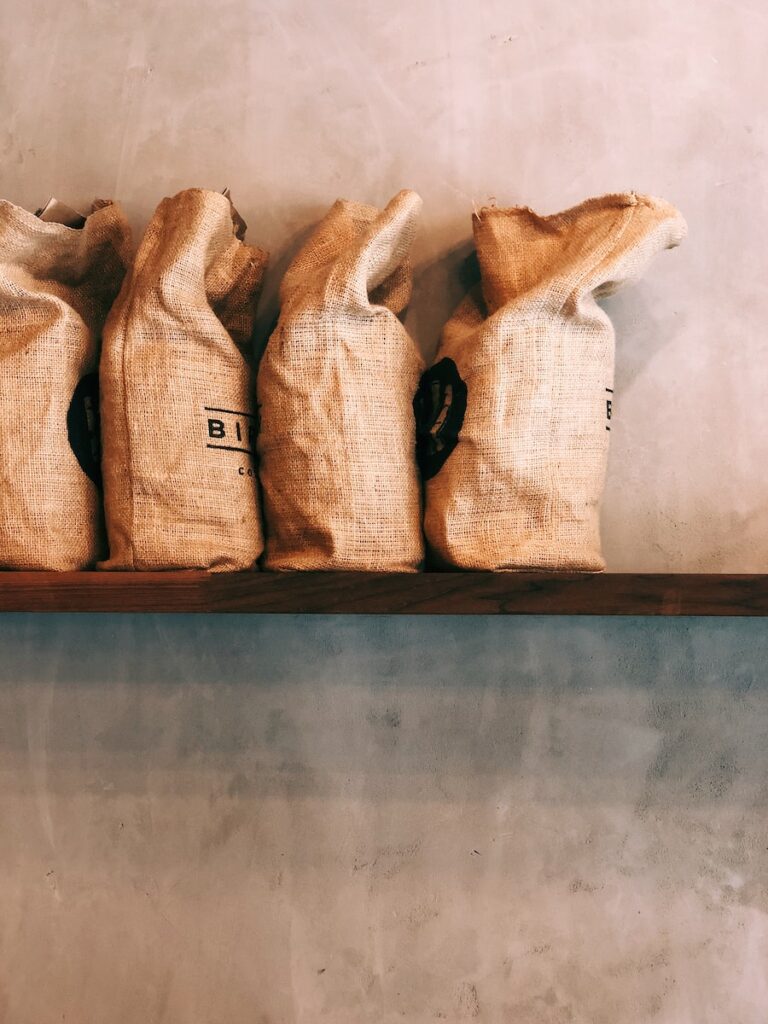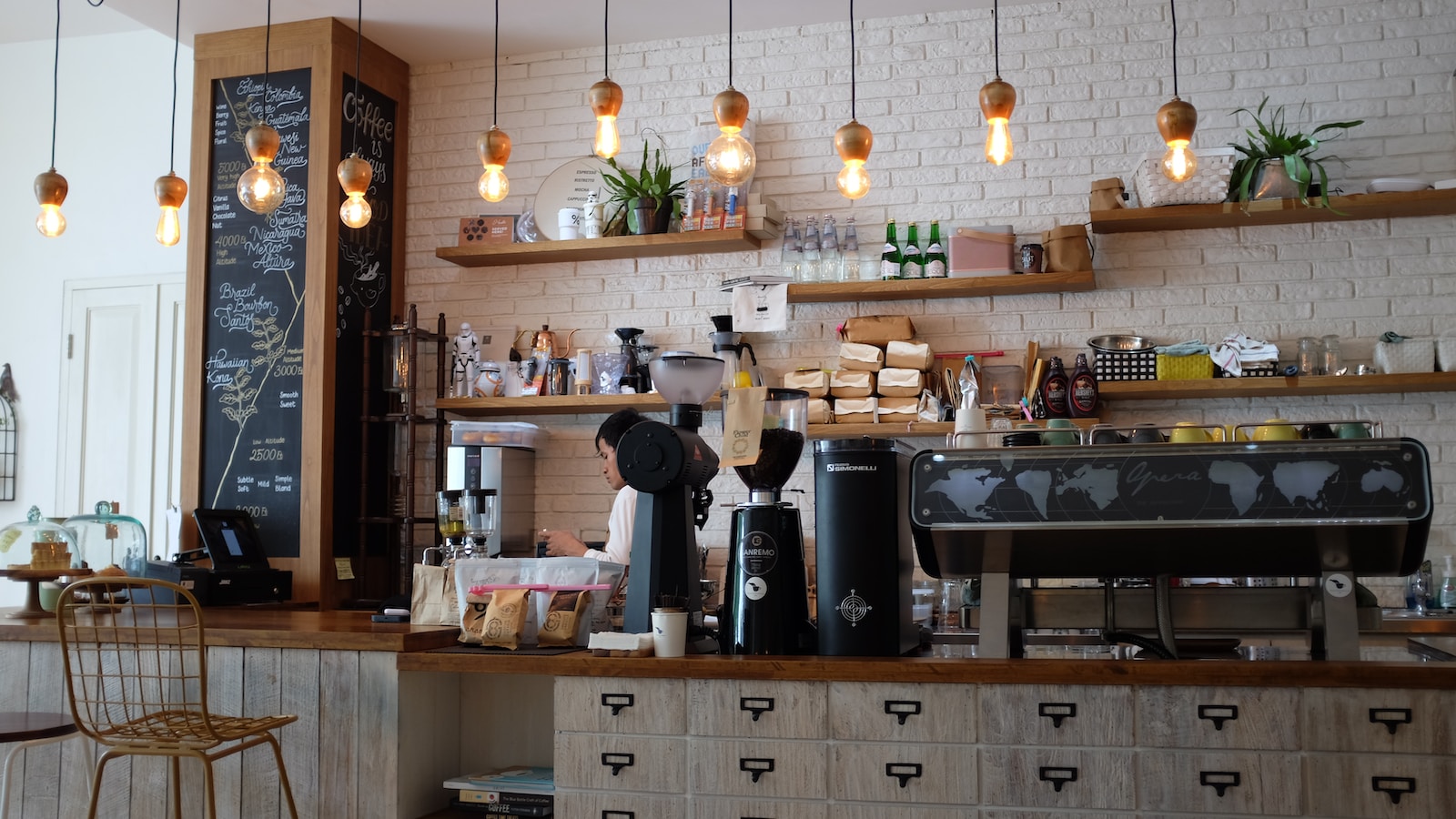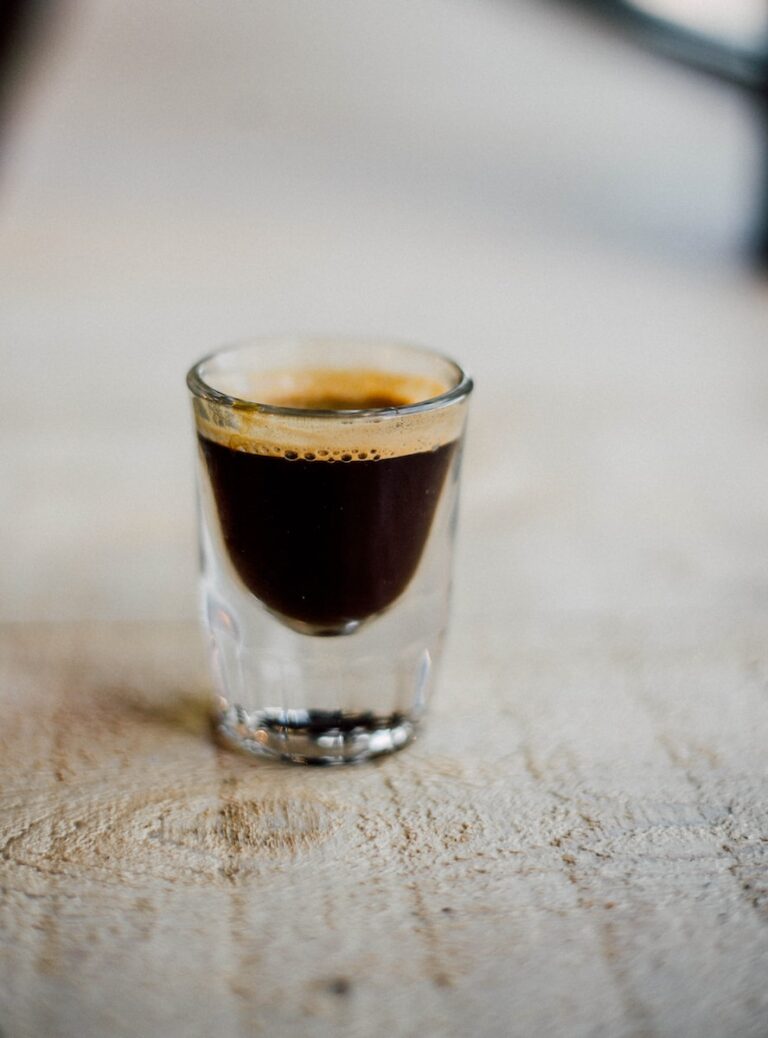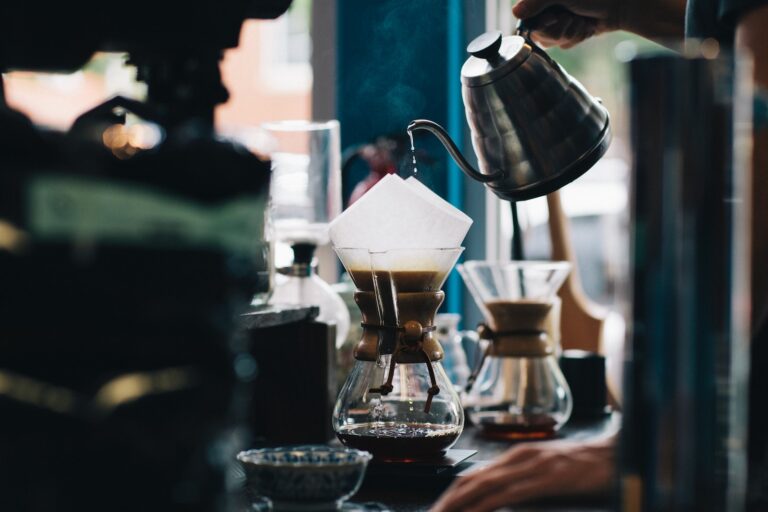If you’re tired of waking up to lackluster mornings and lackadaisical cups of joe, then look no further. Today, we’re delving into the secret art of storing coffee beans for maximum freshness. Whether you prefer a velvety latte or an invigorating espresso shot, understanding how to preserve your precious beans will unlock a world of rich flavors and tantalizing aromas that will transport you straight to java heaven.
So grab your favorite mug, get ready to become a bean storage expert, and say hello to unparalleled mornings filled with the perfect brew every single day. Let’s embark on this flavor-filled journey together!
Introduction: The Importance of Properly Storing Coffee Beans

Coffee is more than just a morning pick-me-up; it’s a delicious, aromatic beverage that many people rely on to start their day. But did you know that how you store your coffee beans can greatly affect the taste and quality of your coffee?
Most people are familiar with the concept of storing food properly to maintain its freshness, but the same applies to coffee beans. In fact, storing coffee beans correctly is essential for preserving their flavor and aroma.
In this section, we will discuss why it is so important to properly store your coffee beans and the factors that can affect their freshness. By understanding these key elements, you will be able to enjoy a perfect cup of joe every time.
Best Storage Containers for Coffee Beans
When it comes to preserving the freshness and flavor of your coffee beans, proper storage is key. It’s important to protect those delicate beans from moisture, air, heat, and light in order to maintain their optimal taste profile for as long as possible.
One of the most effective ways to store your coffee beans is by using airtight storage containers. These are designed specifically for maintaining the quality of coffee beans and keeping them fresh for longer periods of time. But with so many options available on the market, how do you choose the best storage container for your coffee beans?
Let’s take a look at some factors to consider when choosing a storage container for your precious coffee beans:
1] Material: The material of a storage container can greatly affect its effectiveness in preserving the freshness of your coffee beans. Glass jars or ceramic containers are great options as they are non-reactive and won’t absorb any odors or flavors from exposure to outside elements.
2] Airtight seal: As mentioned before, an airtight seal is essential in keeping oxygen away from your coffee beans. Look for containers with secure lids that also have rubber gaskets or silicone seals to ensure maximum protection against air exposure.
3] Size: When picking out a storage container for your coffee beans, it’s important to consider the size and quantity you will be storing. While larger containers may seem like a good option for bulk buying or storing different varieties of coffee, it’s important to keep in mind that every time you open the container, you are exposing the beans to air. It’s best to choose a size that allows you to use up the beans within a week or two.
4] UV Protection: Coffee beans are also sensitive to light, so choosing a container that offers UV protection can help preserve their quality and flavor. Look for containers made of amber glass or with opaque layers that will prevent light from reaching your beans.
5] Functionality: Some storage containers come with additional features such as one-way valves, which allow carbon dioxide to escape while preventing oxygen from entering the container. These types of containers are great for storing freshly roasted whole beans. Additionally, look for containers with easy-to-use mechanisms such as pour spouts or scoops for convenient access to your coffee beans.
How Long Can You Store Coffee Beans?
Coffee beans are a staple for many morning routines, providing that much-needed boost of energy and flavor to start the day. However, not all coffee beans are created equal, and the quality of your cup of joe depends greatly on how you store your beans. Many coffee lovers may wonder: how long can I store my coffee beans before they go bad?
The answer to this question varies depending on various factors such as the type of bean, roast level, and storage method.
Here’s a breakdown of the shelf life for different types of coffee beans:
1] Whole Beans vs Ground Beans
Whole coffee beans generally have a longer shelf life compared to ground coffee due to their protective outer layer that helps to preserve freshness. When coffee beans are ground, they’re exposed to oxygen, light, and moisture which can accelerate deterioration. As a result, whole beans can last significantly longer than pre-ground ones.
2] Roast Level
Another factor that affects the shelf life of your coffee is its roast level. Lighter roasts tend to have a shorter lifespan as they contain more oils and gases that contribute to flavor but also lead to quicker degradation. On the other hand, darker roasts have less oil content and therefore can last longer without losing their flavor or quality.
3] Proper Storage Methods
Regardless of whether you buy whole or ground coffee beans, proper storage is crucial in extending their lifespan. The enemies of fresh coffee are air, light, heat, and moisture – all things commonly found in our kitchens. As such, it’s recommended to store your coffee beans in an airtight container in a cool, dark, and dry place such as a pantry or cabinet. Avoid storing them in the fridge or freezer as the moisture can lead to condensation and affect the quality of your beans.
4] Type of Bean
The type of bean you have also plays a role in its shelf life. Arabica beans, which are known for their rich flavor and low acidity, tend to have a longer lifespan compared to Robusta beans that are commonly used in cheaper blends.
5] Freshness Date
Finally, many coffee roasters will print a “freshness date” on their packaging, which is typically around two to four weeks from the roast date. This doesn’t necessarily mean that the beans will go bad after this date, but rather that they may start losing their optimal flavor and freshness.
In general, whole coffee beans can last anywhere from 6-9 months if stored properly. Ground coffee has a shorter lifespan of 2-4 weeks due to increased exposure to air and moisture. However, these timelines are just guidelines and ultimately depend on factors such as the quality of the beans and your storage method.
The Dangers of Improperly Stored Coffee Beans
Coffee lovers know the importance of storing coffee beans properly in order to maintain maximum freshness and flavor. However, many people may not be aware of the potential dangers that can arise from improperly storing coffee beans. In this section, we will outline some of the hazards of improper storage and how it can affect the taste and quality of your favorite cup of joe.
1] Exposure to Oxygen: Coffee beans are extremely sensitive to oxygen exposure. When exposed to air, they begin to oxidize which leads to a loss in aroma and flavor compounds. This is why most coffee bags have one-way valves that allow carbon dioxide (CO2) gas, which naturally occurs in roasted coffee beans, to escape while preventing oxygen from entering. Improperly stored coffee beans can lose their freshness quickly due to increased oxygen exposure.
2] Moisture: Another common mistake when storing coffee beans is exposing them to moisture or humidity. If not kept in an airtight container, coffee beans can easily absorb moisture from the surrounding environment which can lead to mold growth and deterioration of quality. This is especially true for whole bean coffees as their outer layers are more prone to absorbing moisture than pre-ground coffees.
3] Heat: Temperature control is crucial when it comes to storing coffee beans. High temperatures can cause the oils within the beans to break down and turn rancid, resulting in an unpleasant taste and smell. Additionally, heat causes increased oxidation which accelerates staling – where flavors become dull over time – leading to a stale and less flavorful cup of coffee.
4] Light: Like many food products, coffee beans are also sensitive to light exposure. Direct sunlight or even strong artificial light can cause a chemical reaction within the beans that can affect their flavor. This is why it’s best to store coffee beans in a cool, dark place.
5] Contamination: Improper storage can also lead to contamination of coffee beans. Bacteria and molds thrive in warm and moist environments, so if your coffee beans are stored in such conditions, they may become contaminated. Consuming contaminated coffee beans can lead to food poisoning, which can cause symptoms such as nausea, vomiting, diarrhea, and stomach cramps.
In conclusion, proper storage of coffee beans is crucial for maintaining freshness and flavor while also preventing potential health hazards. To ensure your daily cup of coffee is as enjoyable as possible, store your beans in an airtight container in a cool, dark place away from moisture and heat sources. Doing so will not only help protect your health but also result in a tastier cup of java!
DIY At-Home Roasting: How to Keep Your Beans Fresh
Roasting your own coffee beans at home is a rewarding and cost-effective way to enjoy a fresh cup of coffee every day. However, proper storage of roasted beans is essential to maintain their freshness and ensure the best possible flavor in your brews. In this section, we will cover everything you need to know about DIY at-home roasting and how to keep your beans fresh.
1] Get Your Equipment Ready: Before embarking on your journey of DIY roasting, it is important to make sure you have all the necessary equipment for the process. This includes a high-quality air-tight container or jar for storing your roasted beans, a kitchen scale for accurate measurements, and a good quality burr grinder for grinding the beans just before brewing.
2] Roast in Small Batches: When it comes to roasting your own beans at home, less is more. It is recommended to roast smaller batches of beans rather than large ones, as this allows you more control over the process and ensures that all beans get an even roast. Moreover, freshly roasted coffee loses its flavor quickly if not consumed within two weeks; therefore, small batches will ensure that you don’t end up with stale coffee.
3] Use Quality Beans: The key to great-tasting coffee starts with using high-quality green coffee beans. Look for specialty grade Arabica green coffee which offers better flavor profiles compared to Robusta varieties.
Conclusion: Enjoying a Fresh Cup Every Time
In today’s fast-paced world, with our busy schedules and limited time, it can be challenging to always enjoy a cup of freshly brewed coffee. However, by following the right storage techniques and maintaining proper freshness, you can ensure that every cup you drink is as flavorful and aromatic as the first.
We have discussed various ways to store your coffee beans for maximum freshness in this article. From choosing the right type of container to storing them in an ideal environment, each step plays a crucial role in preserving the quality of your coffee beans. By now, you should have gained a good understanding of how to keep your coffee beans fresh for longer periods.







